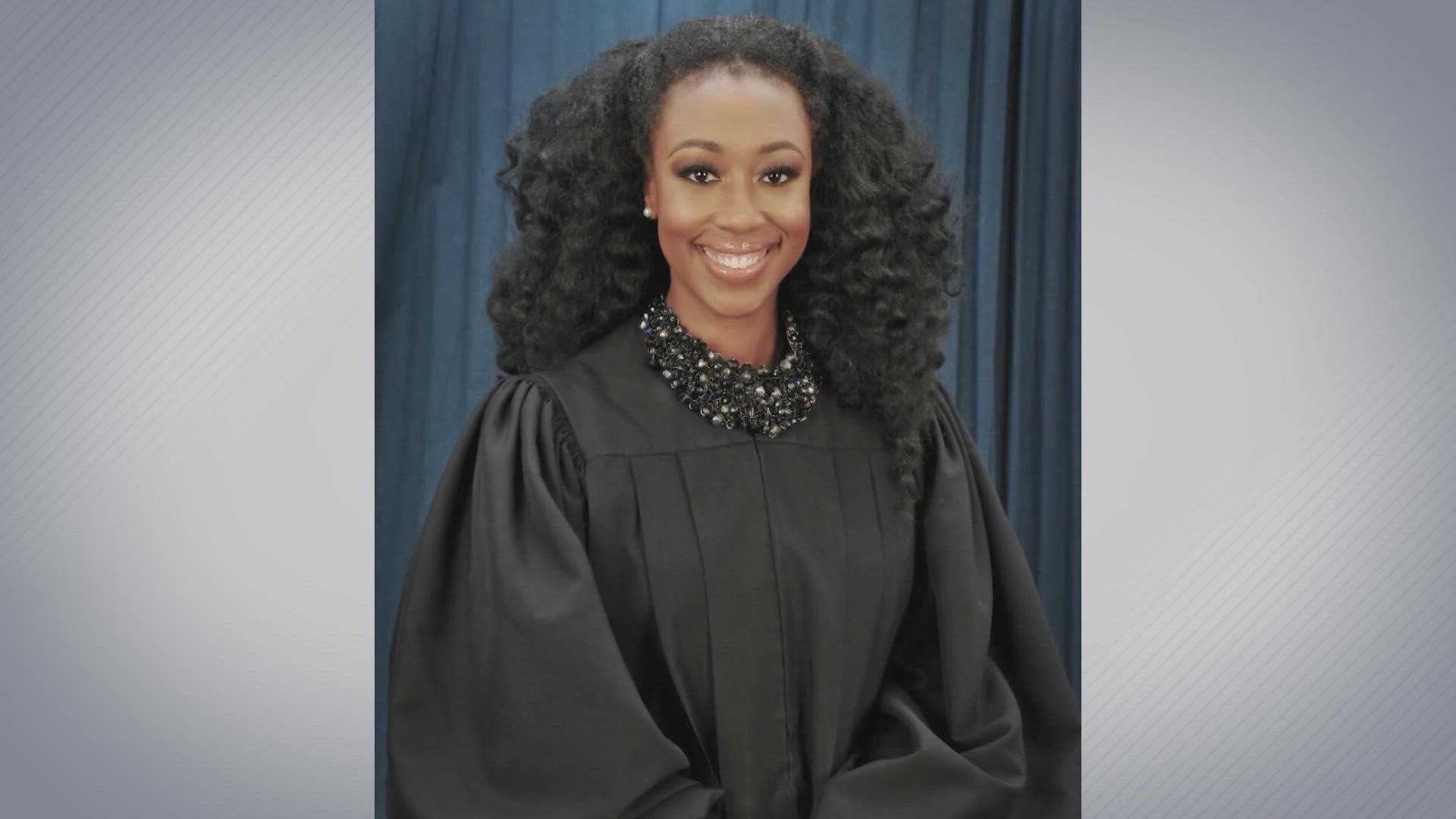DALLAS — Judge Amber Givens and Dallas County's 282nd Judicial District Court have come under spotlight in recent months, as Givens has been recused from roughly 100 cases after attorneys alleged bias.
Givens has either voluntarily recused from the cases, or motions filed by attorneys have been granted by First Administrative Judge Ray Wheless.
In total the Dallas judge has been recused from roughly 100 active cases. When a judge is recused the case is taken out of their court.
"I've never seen this many recusals in one county. I've never heard of it, never seen it," said Wheless, Regional Presiding Judge for First Administrative Judicial Region of Texas.
He told WFAA there's normally one or two recusal hearings a week. Wheless did not comment on specific cases, but he agreed to speak to the recusal process.
"You'd have to ask Mrs. Shiver but she's been really busy. She assigns the case to the court that is next in line," Wheless said.
Candy Shiver is the court coordinator responsible for re-assigning all of these cases which she admits is a tedious task. These 100 or so cases from the 282nd Court will be spread out over 17 felony district courts in Dallas County.
"In one word? Catastrophic. Because that encompasses all of the spiderwebs that come from a recusal," said Mark Lassiter, who is a defense attorney of 20 years.
Lassiter said he has six cases currently pending in Givens' court. He is also the attorney representing many DCDLA attorneys, the Dallas Criminal Defense Lawyers Association. Lassiter said there are motions to recuse dating back to the beginning of the year. He argued bias and an inefficient court left him no other option but to file to recuse.
"People will stay in jail longer than they should be. People will not be able to make lawful requests they would normally be able to do and attorneys are not going to be able to resolve cases," Lassiter said.
Delays are inevitable when recusals happen. Lassiter said, at best, cases will get pushed for weeks.
In a statement to WFAA, Givens characterized the recusals as "attorney antics" meant to "suppress the will of voters."
"It's politics, politics, politics," said attorney Charles Maduka. "I don't think they're giving her respect. They are undermining her authority."
Givens did not give WFAA an on-camera interview, but her communications team connected us with Maduka, who is a Dallas defense attorney of 34 years. He told WFAA that any notion of major delays is exaggerated.
Here's the full statement from Givens and her team:
“The recusals are nothing more than a few people playing politics. Last fall officers of DCDLA leveled false accusations against me in conjunction with running two soundly defeated candidates against me in the primary. Having lost those elections after campaigning on blatantly false information, this is yet another attempt by DCDLA to suppress the will of the voters. In today’s political climate, we have seen multiple attacks on the integrity of elections in Texas including efforts to change voting laws, redrawing voting districts and prosecuting lawful voters. These recusal cases represent less than one percent of the more than 5,000 cases that my court disposed of within the last three years. The residents of Dallas County should rest assured that regardless of which judges hear these cases, the individuals accused in these cases will receive fair trials in spite of their lawyers’ antics. I was re-elected to serve the residents of Dallas County and I remain committed to the administration of justice."
Lassiter said there will be ethics and due process implications from all this. He anticipates former 282nd defendants to come out of the woodwork to attempt to re-try their cases. In fact, he said his firm has recently been hired by a client who had a case in Given's court.
"The delays hurt the clients, it hurts society, and it hurts constituents," Lassiter said.
Wheless and his staff were left to deal with the onslaught of recused cases. He said the law does allow him to offer immediate relief in certain circumstances.
"People who are in jail are supposed to take priority over people not in jail. Certain cases have priority over other cases. It's the duty of the new judge to look at the case and decide whether to move it to the top or not," Wheless said.
On Monday, four new voluntarily recused cases from the 282nd Court ended up on Shiver's desk. Wheless told WFAA that the ultimate hope is that all cases are reassigned in the next couple weeks.

